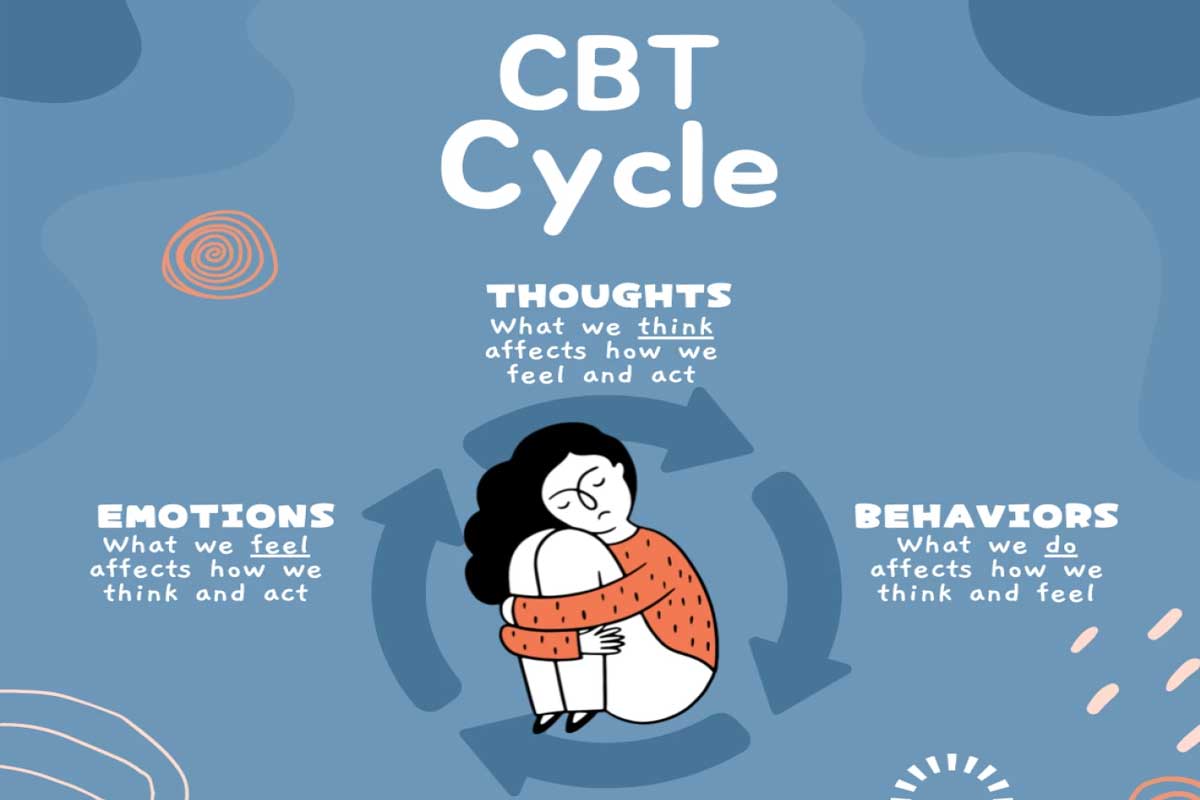

Cognitive Behavioral Therapy (CBT) is a widely recognized and evidence-based approach for treating anxiety disorders. It focuses on identifying and challenging negative thought patterns and beliefs that contribute to anxiety, as well as teaching practical coping skills to manage symptoms effectively. In this guide, we’ll explore the principles of CBT and how it can be used as a powerful tool for anxiety relief.
Understanding CBT: CBT is based on the premise that our thoughts, feelings, and behaviors are interconnected, and that by changing our thoughts and behaviors, we can influence our emotions and improve our mental health. CBT is structured, goal-oriented, and typically involves a collaborative relationship between the therapist and the client. The goal of CBT is to help individuals develop more adaptive ways of thinking and behaving in order to alleviate symptoms of anxiety.
Key Principles of CBT:
1.Cognitive Restructuring: CBT involves identifying and challenging negative thought patterns and cognitive distortions that contribute to anxiety. This process, known as cognitive restructuring, involves examining the evidence for and against negative thoughts, identifying cognitive biases, and replacing irrational beliefs with more balanced and realistic ones.
2.Behavioral Activation: CBT also emphasizes the importance of behavioral changes in reducing anxiety symptoms. This may involve gradually exposing oneself to feared situations or stimuli (exposure therapy), engaging in pleasurable and rewarding activities (behavioral activation), and practicing coping skills such as relaxation techniques and problem-solving strategies.
3.Skill Building: CBT teaches individuals practical coping skills and strategies to manage anxiety symptoms in real-life situations. These may include relaxation techniques (e.g., deep breathing, progressive muscle relaxation), mindfulness and meditation exercises, assertiveness training, and social skills training.
4.Homework Assignments: CBT often includes homework assignments between therapy sessions to reinforce learning and practice new skills. These assignments may involve keeping thought records to track negative thoughts and their impact on emotions, conducting behavioral experiments to test beliefs, or practicing coping skills in real-life situations.
How CBT Helps with Anxiety: CBT can be highly effective in treating various types of anxiety disorders, including generalized anxiety disorder (GAD), panic disorder, social anxiety disorder, specific phobias, and obsessive-compulsive disorder (OCD). Here’s how CBT helps with anxiety relief:
1.Identifying Triggers: CBT helps individuals identify the specific triggers and situations that provoke anxiety, allowing them to develop personalized coping strategies.
2.Changing Thought Patterns: CBT teaches individuals to recognize and challenge irrational and distorted thinking patterns that contribute to anxiety, replacing them with more rational and adaptive thoughts.
3.Developing Coping Skills: CBT equips individuals with practical coping skills and techniques to manage anxiety symptoms in the moment, such as relaxation techniques, mindfulness practices, and problem-solving strategies.
4.Building Confidence: Through gradual exposure to feared situations and behavioral experiments, CBT helps individuals confront their fears and build confidence in their ability to cope with anxiety-provoking situations.
5.Preventing Relapse: CBT teaches individuals relapse prevention strategies to maintain gains achieved in therapy and prevent the recurrence of anxiety symptoms in the future.
Conclusion: Cognitive Behavioral Therapy (CBT) is a powerful and effective tool for relieving anxiety symptoms and improving overall mental well-being. By challenging negative thought patterns, developing coping skills, and gradually exposing oneself to feared situations, individuals can learn to manage anxiety more effectively and regain a sense of control over their lives. If you’re struggling with anxiety, consider seeking support from a qualified therapist or counselor who can guide you through the process of CBT and help you achieve lasting relief from anxiety.
